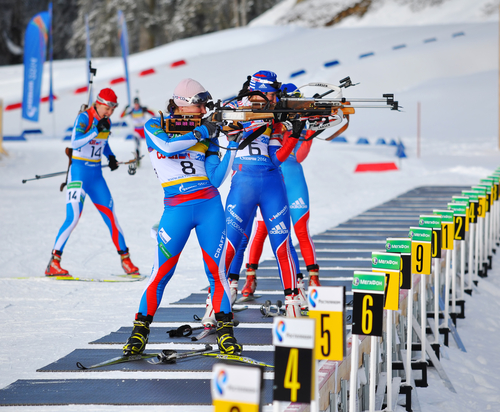The Sochi Olympics are a case study in bureaucratic inefficiency and misuse of state funds despite some real engineering feats. The legislation underlying Russia’s government contracts framework has played a vital role in the development of public procurements and continues to do so in the aftermath of Sochi. On January 1, 2014, a new law, Federal Law No-44 “On the contract system for the procurement of goods, works and services for the supply of government and municipal needs,” came into force, replacing Federal Law No-94, which regulated procurements since 2005. Federal Law No-44 introduces transparency and new audit and planning requirements for procurements. Lessons can be learned from the public procurement reforms in light of cost overruns underlying the Olympics.
The 2014 Olympics are representative of the situation facing the public procurement sector. At $51 billion, the Sochi Olympics are the most expensive in history, surpassing the $40 billion budget for the 2008 Beijing Olympics. In 2007, Vladimir Putin assured IOC delegates in Guatemala that Russia could spend $12 billion for Sochi, an amount that overshadowed competing proposals from South Korea and Austria. Since, costs skyrocketed due to cost overruns, logistical challenges and even the local climate. Costs are far higher than in Beijing although the Sochi Olympics involve fewer athletes and events; the Summer Games involve 302 events, whereas Sochi, at over $50 billion, involves 98. Russia spent $520 million per event compared to China’s $132 million per event in 2008.
Statistics attest to logistical error and Olympian levels of corruption. For example, the Bolshoy Ice Dome, built for roughly $300 million, is valued at approximately $25,000 per seat, a price tag that ballooned by two-and-a-half times the original amount. The “RusSki” ski jump facility fell two years behind schedule as costs increased from an initial 1.2 billion rubles ($40 million) to 8 billion rubles ($265 million). The government blames overruns on miscalculations, inflation and even the financial crisis, yet Russia Today (a pro-government media outlet) indicates that embezzlement in Sochi reached $506 million. Moreover, Arkady Rotenburg, a former judo partner of Putin’s who once claimed the President was sent to Russia from God, received nearly $7 billion in contracts on nearly all major infrastructure projects. Companies linked with the Rotenburg family won contracts worth 15 percent of the budget. His company also received contracts without a tender to build a gas pipeline to Sochi.
Some are investigating this alleged impropriety. Sochi native and opposition politician, Boris Nemtsov, calculated that Russia spent three times more on a 31-mile road-rail route than NASA spent on a new generation of Mars rovers. At $9.4 billion, the route linking the Krasnaya Polyana ski complex and the coastal Adler district exceeds the entire budget for the Vancouver Olympics and the Wall Street Journal values the route at $200 million per kilometer. According to statistics on an interactive website run by opposition politician Alexei Navalny, the price per seat at Fisht Stadium (used for the opening and closing ceremonies) amounts to $23,600, much higher than a similar venue at the 2006 Torino Olympics. Navalny’s data suggests that each venue is overpriced by 2.5 percent of the projected costs, a percentage highlighted by The Economist as attributable to kickbacks.
Authorities have opened few criminal cases involving the Olympics. In 2012, investigators brought charges against several contractors at Fisht Stadium and the Sanski Sliding Center. The suits alleged that contractors inflated costs by filing false or unjustified project estimates, a common unlawful practice in many tenders. The alleged losses to the state budget totaled nearly $170 million for Fisht and $75 million for the Sanski Center. In April 2013, a criminal case was opened against Akhmed Bilalov, former deputy head of the Olympic Committee for embezzlement related to a state-owned company (OAO North Caucasus Resorts) responsible for building the Rosa Khutor ski jump facility. According to reports, the company could have performed the work itself, but conducted a closed tender for affiliated firms and overpriced the orders. No Olympic cases have come to court.
Olympstroy: A State Corporation’s Unaccountability
The entity responsible for overseeing Sochi’s transformation into a world-class resort is the «State Corporation on Construction of Olympic Venues and Development of Sochi as Mountain Climatic Resort» or “SC Olympstroy.” Established by Federal Law № 238 (adopted October 30, 2007), Olympstroy is not subject to traditional oversight and is instead operated using administrative acts and corporate structures. Russian state corporations are special types of noncommercial partnerships created by the state for specific purposes. The activities of each corporation are described in a special federal law. Like any state corporation, Olympstroy is accountable to its own “supervisory committee” and to the President. These entities, established in 2007 as privatized alternatives to federal state unitary enterprises, have privileges not afforded to other legal entities in Russia, such as open-stock companies. Privileges are granted to sectors including atomic energy (Rosatom), the state development bank (VEB – Vnesheconombank) and Rusnano (a nanotechnology giant, now an open-stock company) and Olympstroy, which is also immune from bankruptcy law (and can only be liquidated using a statutory procedure), as well as public procurement laws. In short, Olympstroy enjoys autonomy to run its own affairs with little outside interference other than at the President’s initiative.
Efforts to reign in Olympstroy’s extravagance have, of course, been attempted. In 2009 and 2011, Aleksey Bagaryakov, an independent Duma representative with the communist bloc in the Duma, advanced legislation requiring Olympstroy to report its accounting data on a yearly basis; establish a true audit council consisting of 20 members from the business community, the government, the State Duma, the Audit Chamber and the Prosecutor’s Office; and permit the Duma to remove Olympstroy’s director upon the outcome of the review. The 2009 bill and a 2011 revision faced opposition from the ruling United Russia Party (available in Russian).
When the Audit Chamber finally investigated Olympstroy in 2012, it found company officials overstated expenses by $506 million. The Audit Chamber reported: “An investigation has shown that corporation executives created the conditions for an unjustified increase in the estimated cost of the sports facilities.” It added that between 2008 and 2010 they created conditions “conducive to incurring unreasonable cost overruns.” At least three investigations against company employees were launched. Olympstroy has changed its general director four times in six years.
This is the first of two installments on corruption and the Sochi Olympics. Watch for part two later this week.












